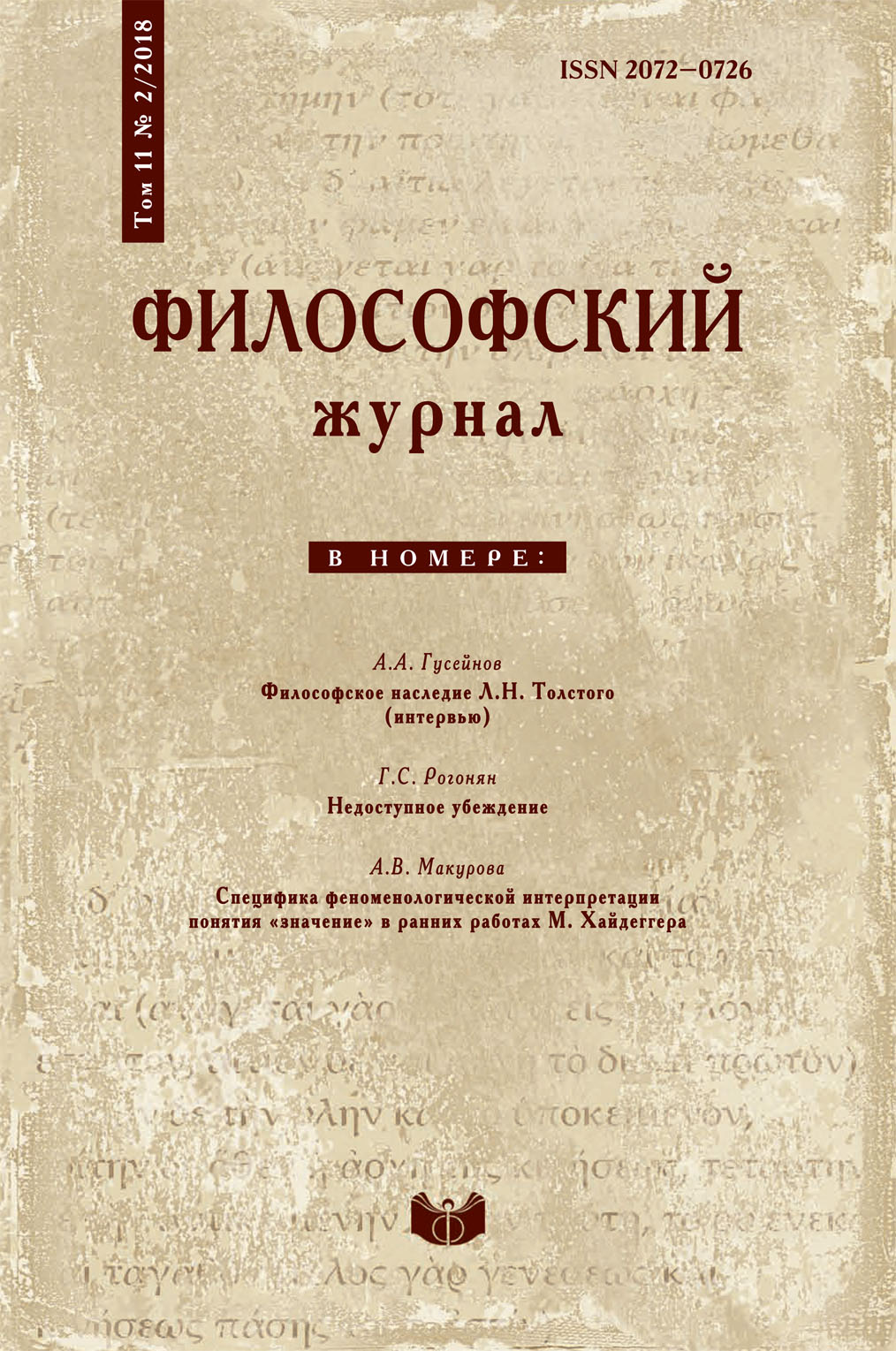The philosophical legacy of Leo Tolstoy
(interviewed by Predrag Cicovacki)
DOI:
https://doi.org/10.21146/2072-0726-2018-11-2-5-21Keywords:
Leo Tolstoy, philosophy, faith, religion, nonviolence, Rousseau, Schopenhauer, quietismAbstract
This article is devoted to the philosophical legacy of Leo Tolstoy and is written in the form of answers given by professor Abdusalam Guseynov to the questions put by professor Predrag Cicovacki (USA). It discusses the main philosophical influences experienced by Tolstoy and his special attitude towards the thinkers of the past. Tolstoy's distinctive style of thinking and his teaching owe their systematic character to the moral program of individually responsible acting, based on the ethics of nonresistance to evil by force. Special attention is given to Tolstoy's view of quietism and the difference between it and his own program of moral perfection. An assessment of Tolstoy's place in the intellectual tradition and the great urgency his philosophy of nonviolence has today conclude the dialogue.






